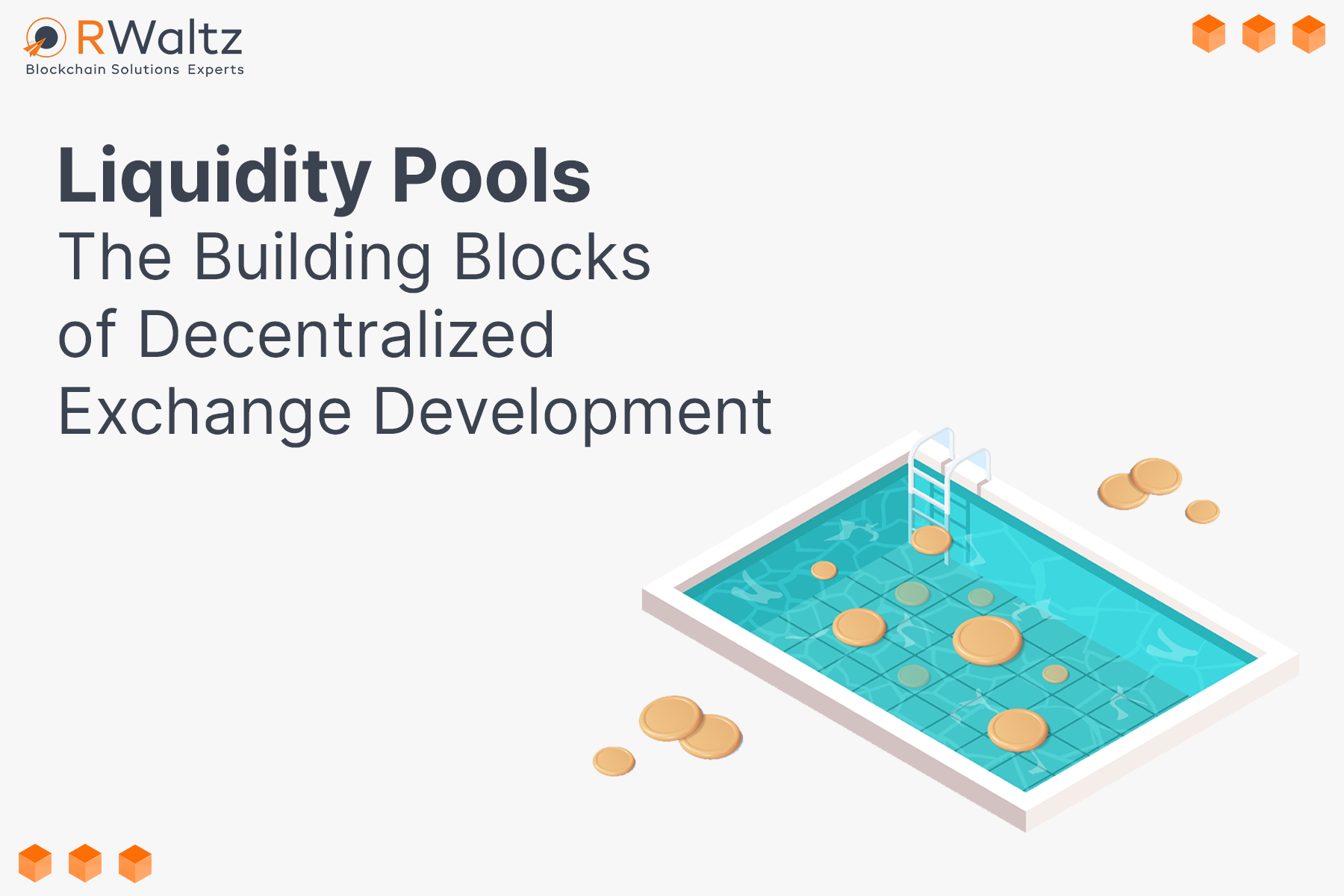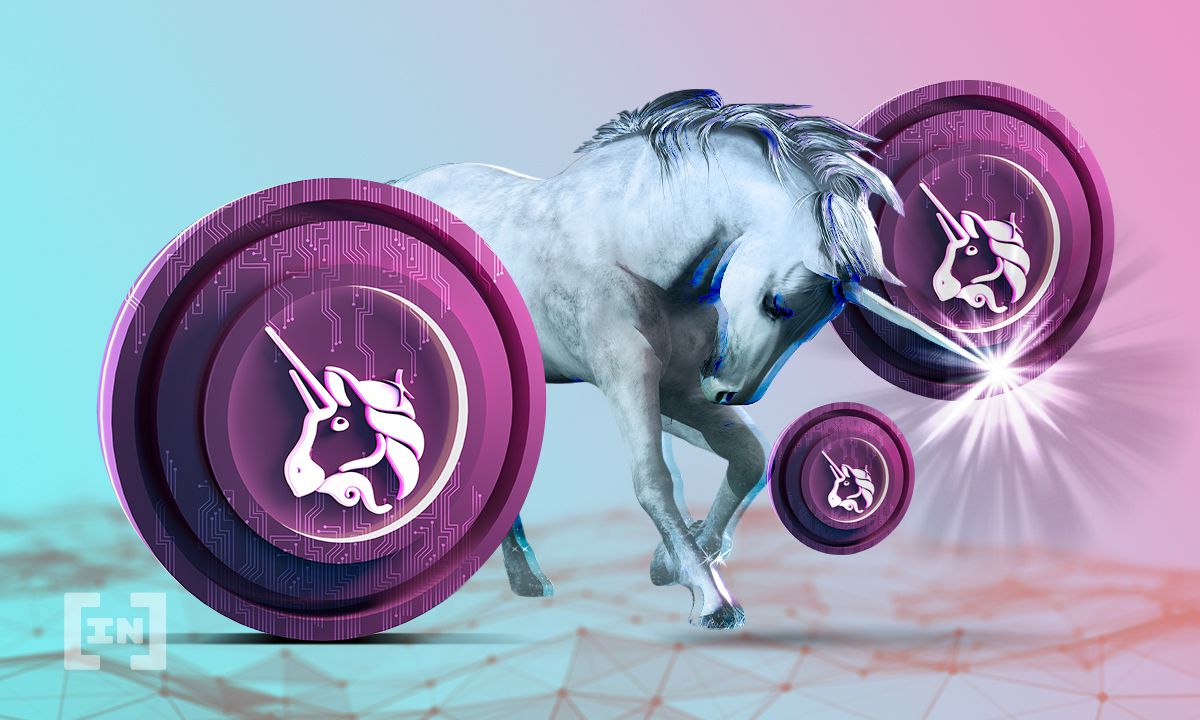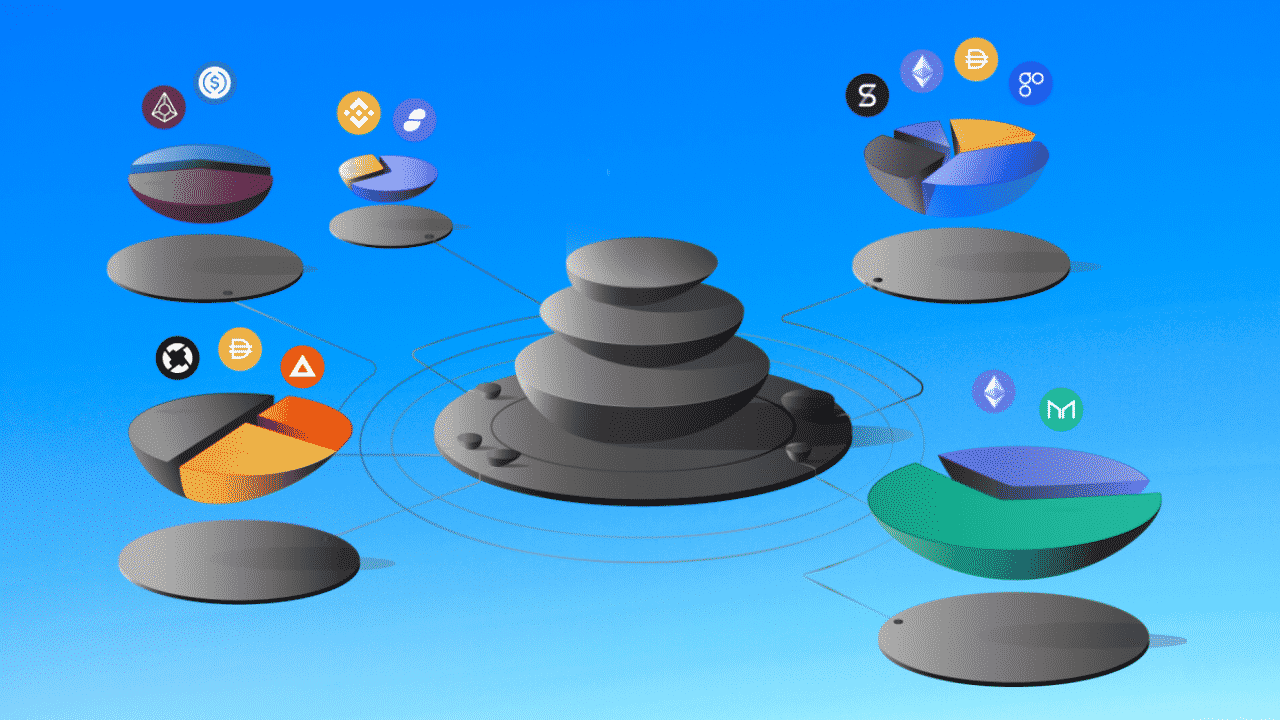Liquidity Pools- The Building Blocks of Decentralized Exchange Development

What is a Liquidity Pool?
Liquidity pools are defined as crowdsourced pools, where cryptocurrencies or tokens are locked in a smart contract facilitating trades between the assets on a Decentralized Exchange (DEX). Most of the Defi platforms use automated market makers rather than traditional markets enabling automated trading of digital assets through the liquidity pools.
The Liquidity Pools depict a mechanism enabling users to pool their assets in a DEX’s smart contracts that offers asset liquidity to the traders for currency swap. Addressing the challenge of limited liquidity supply, automated market makers offered incentives to supply these pools with the assets without the intermediary. The trading turns easier on Decentralized Exchanges with increasing assets added to the pool and the rising liquidity of the pool.
What is an Automated Market Maker?
Automated Market Makers (AMMs) refer to a part of decentralized exchanges (DEXs) that eliminate the need for a middleman while crypto trading. These are autonomous protocols on the DEX platforms that automate liquidity.
These AMM protocols use smart contracts (self-executing computer programs) to determine the price of digital assets and provide liquidity. The users don’t trade against the counterparties but they trade against the liquidity locked into smart contracts.
What are Arbitrage Traders?
Arbitrage Traders exploit the tiny differences in price between identical assets in multiple markets. The arbitrage trader is defined as a trader who buys an asset in one market and sells it in another market at the same time to analyze the difference and efficiency between the markets.
In standard terms arbitrage is defined as buying and selling of shares or digital assets in multiple markets to receive profit from inevitable differences in the prices at the same time. Arbitrage traders are popular for enhancing the efficiency of the financial markets, by bidding for the lower-priced assets and selling off the higher-priced assets.
What is the Purpose of a Liquidity Pool?
During a trade, investors or traders encounter a difference between the executed and expected price, which might lead to illiquid markets. The liquidity pool eliminates the concerns of illiquid markets offering incentives to the users and giving liquidity for a share of trading fees.
Trading through Uniswap liquidity protocols eliminates buyer and seller matching. In other words, traders can exchange their tokens and assets through liquidity provided by users and transact through smart contracts.
What are Liquidity Pool Tokens?
Liquidity Pool Tokens also known as Liquidity provider tokens are given to users who provide liquidity in the pools. Once you deposit a pair of tokens in the pool, you’ll receive LP tokens as a “receipt”. These tokens perform as a receipt that allows users to claim the original stake and interest earned.
What is a Price Impact?
Price Impact refers to the difference between the current market price and the price you will pay during a swap on a decentralized exchange. The price impact occurs due to the pricing of the DEX platforms. The change in the ratio of assets in the pool leads to one asset turning expensive and the other one becoming inexpensive. When the supply of one asset increases the supply of the other one decreases making the decreasing asset more expensive. The more the shift in ratio, the more the price changes.
What is Slippage Tolerance?
When a trader tries to execute an order on the market at one price but in the end pays more than expected or even less due to the recently executed trades is slippage.
Slippage Tolerance is defined as the adjustment of the price “movement” limit by the number of digital assets a user is willing to bear. This number is presented in the form of a percentage of the total exchange value. In simple words, it is the difference between the token price we can tolerate that occurs while we carry out the operation. If the token is more or less then the price, the operation is halted.
What is a liquidity provider?
A liquidity provider refers to a market broker or institution that acts as a market maker in a chosen asset class. The liquidity provider offers crypto assets to a platform helping them with decentralized trading. These market makers in return are rewarded with fees generated by trades on that platform which might be thought of as passive income. The assets provided by the user are locked for the time frame user has chosen to provide liquidity.
Which are the popular Liquidity Pool Providers?
Decentralized exchanges use Automated Market Markers to leverage liquidity pools for enabling permissionless and automated trading of digital assets. Here’s a list of popular platforms offering liquidity pools.
Uniswap
Uniswap is considered to be one of the crucial entries in the liquidity pools based on its trading volume. The platform enables decentralization of trade between ETH and ERC-20 tokens. Uniswap offers a competitive advantage as it operates as an open-source exchange and assists any individual to launch a liquidity pool for any token without any fees.
Balancer
The balancer is an Ethereum-based liquidity pool that serves as a non-custodial portfolio manager and price sensor. It offers the users the flexibility to customize pools along with the trading fees earned by subtracting or adding liquidity. The platform offers multiple pooling choices that include private, smart, or shared pools. In March 2020, Balancer introduced a liquidity mining facility by distributing BAL governance tokens to the liquidity providers.
Curve Finance
Curve Finance is a decentralized liquidity pool that serves favorable opportunities for stablecoin trading. The platform offers 7 different pool pairs with distinct ERC-20 pool pairs. Thus, it supports swapping for various pools of crypto assets and stablecoins, which comprise BTC, PAX, BUSD, and many more.
Wrap Up
Hopefully, the article has enlightened you on liquidity pools. For further queries connect to our experts. If you are looking for a Blockchain and Cryptocurrency Development Company, you are at the right place.
Recent Knowledge Base
- The Benefits of Fractional NFTs
- Demystifying Token Standards: A Beginner's Guide to Finding the Right Fit for Your Blockchain Project
- 250+ Gaming NFT Ideas to Engage the Users
- Understanding Distributed Ledger Technology (DLT) in Blockchain
- Algorithms in AMM for DEX Development
- The Effects of PayPal's Stablecoin on Global Banking
- What are the benefits of Crypto Staking?
- What is Blockchain Interoperability in Transactions across Crypto Exchanges?
- Multi-Signature Crypto Wallets: The Future of Organizational Decision Making
- CBDC- A New Revolution into the FinTech!
Categories
Latest news, articles, and updates montly delivered to your inbox.









